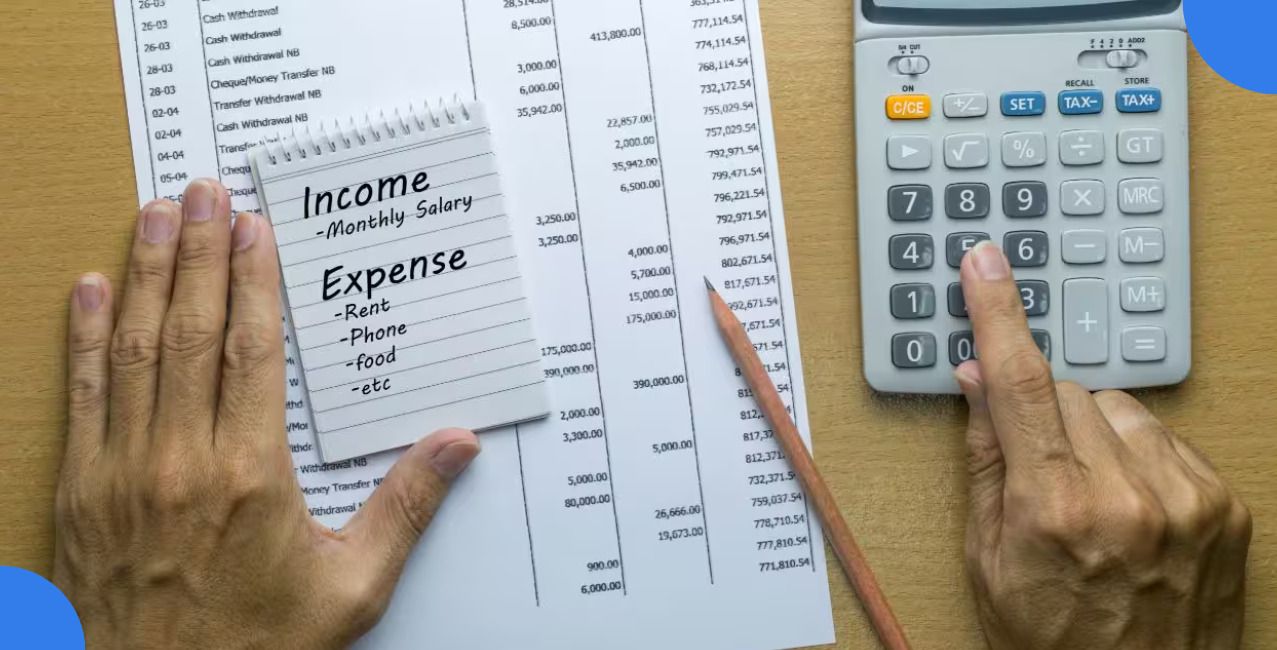What is a Partnership Deed? Meaning, Format & Importance

Check Your Loan Eligibility Now
By continuing, you agree to LoansJagat's Credit Report Terms of Use, Terms and Conditions, Privacy Policy, and authorize contact via Call, SMS, Email, or WhatsApp
A partnership deed is a written agreement that outlines roles, profit-sharing, and responsibilities clearly.
Though not mandatory, it helps avoid conflicts and ensures smooth business operations between all partners.
Let’s say two sisters, Priya and Meera, decide to open a boutique together.
- Priya invests ₹80,000
- Meera invests ₹20,000 and agrees to handle customers and manage the shop daily
They verbally agree to share profits 80:20, and that Meera will get a ₹15,000/month salary for her work.
In the first year, the boutique makes a profit of ₹2,00,000.
Ideally, this is how the profit should be split:
- Priya gets ₹1,60,000
- Meera gets ₹40,000 profit + ₹1,80,000 salary (₹15,000 × 12 months)
But since nothing was written down, Priya later questions why Meera is taking more money.
This leads to arguments and stress.
If they had a proper partnership deed, all this confusion could’ve been avoided, right?
This blog explains the meaning, format, and importance of partnership deeds. It uses real examples to show how partnership deeds prevent disputes.
What is a Partnership Deed?
A partnership deed is a written agreement defining the terms between people running a business together. It covers profit-sharing, roles, capital, and dispute handling to avoid confusion or legal problems.
Let’s understand it with the help of an example:
Let’s say two friends, Ravi and Aman, decide to start a mobile repair business together.
They both invest money and agree to share work and profits.
Now, to avoid future fights or confusion, they write a partnership deed with these terms:
- Ravi will invest ₹60,000
- Aman will invest ₹40,000
- Profits will be shared 60:40 (Ravi: Aman)
- Ravi handles finances; Aman handles customer service
- If there’s a disagreement, they will consult a lawyer or mediator
Now, imagine in the first year, the business earns a profit of ₹1,00,000.
According to their deed:
- Ravi gets ₹60,000 (60%)
- Aman gets ₹40,000 (40%)
Since everything was written clearly in the partnership deed, there is no argument.
This small document saved them from confusion and helped keep their friendship and business strong.
Read More – What is an LLP Company: Meaning, Features & Registration Process
What Are The Key Features of a Partnership Deed?
A partnership deed is the foundation of any partnership business. It defines every partner's role, responsibilities, and financial rights. The table below highlights the key features of a partnership deed:
By clearly outlining all terms and conditions, a partnership deed helps partners avoid confusion, manage responsibilities efficiently, and resolve disputes smoothly, ensuring the partnership runs fairly and transparently from the start.
Why is a Partnership Deed Important?
A partnership deed defines duties, profit shares, and avoids confusion in a business with multiple partners. It ensures smooth operations, legal safety, and helps resolve disputes through a written, agreed framework.
Let’s understand it with the help of an example:
Let’s say three friends- Ravi, Aman, and Neha start a cafe business together.
- Ravi invests ₹50,000
- Aman invests ₹30,000
- Neha invests ₹20,000 and manages day-to-day work
They agree to:
- Share profits in the ratio of 5:3:2
- Neha gets ₹10,000 per month as salary
- Major decisions must be made with all three in agreement
But they don’t write it down. Later, the cafe earns ₹1,00,000 profit.
Now, Aman wants an equal share of the profit. Neha says she should get more because she’s doing all the work.
This leads to arguments and confusion. The business suffers.
Now, imagine they had a proper Partnership Deed:
Everything would be written clearly:
- Capital and profit share
- Neha’s salary
- Decision-making process
- Rules in case someone wants to leave the business
With a deed, no confusion. Everyone follows the agreed terms.
If a fight happens, they can show the deed in court or to a lawyer.
Why a Partnership Deed is Important?
A partnership deed is more than just paperwork; it's a foundation for a healthy business relationship. Here's why it’s so important:
A well-drafted partnership deed ensures clarity, reduces conflicts, and helps the business run smoothly and legally.
What Is The Standard Format of a Partnership Deed?
Also Read - What is a Sole Proprietorship? Features, Advantages & How to Register
A partnership deed is a written agreement that defines the rules, responsibilities, and structure of a partnership business. The table below outlines the standard format, helping ensure clarity, fairness, and legal protection for all partners.
Including these key sections in your partnership deed ensures a smooth business journey, minimises disputes, and creates a legally sound foundation for the partnership. Always ensure it’s well-drafted, signed, and witnessed properly.
Conclusion
A partnership deed is like a guide for running a business with others. It explains who does what, how money is shared, and what to do if there’s a problem. Writing everything down helps avoid fights and keeps things fair. Whether starting with friends or family, always have a written deed. It makes your business journey easier, safer, and more peaceful.
FAQs
Q1: What is a partnership letter?
A partnership letter is a document that outlines roles, contributions, and terms between business partners.
Q2: Which stamp is used for a partnership deed?
A partnership deed is printed on non-judicial stamp paper worth ₹200 or more, based on the firm's capital.
Q3: Can a partner sue another partner?
In an unregistered firm, a partner cannot sue another partner alone; all must be included.
Q4: Is a notary compulsory for a partnership deed?
Notarization is not legally compulsory, but it adds authenticity and strengthens the legal validity of the deed.
Other Related Pages | |||
About the author

LoansJagat Team
Contributor‘Simplify Finance for Everyone.’ This is the common goal of our team, as we try to explain any topic with relatable examples. From personal to business finance, managing EMIs to becoming debt-free, we do extensive research on each and every parameter, so you don’t have to. Scroll up and have a look at what 15+ years of experience in the BFSI sector looks like.
Subscribe Now
Related Blog Post

Salaried vs. Self-Employed: Who Gets a Personal Loan Faster in 2025?

Too Many EMIs? What to Do When Monthly Payments Become Unmanageable

Post Office Customer Care Number: Helpline & Support
Recent Blogs
All Topics
Contents
Quick Apply Loan
Consolidate your debts into one easy EMI.
Takes less than 2 minutes. No paperwork.
10 Lakhs+
Trusted Customers
2000 Cr+
Loans Disbursed
4.7/5
Google Reviews
20+
Banks & NBFCs Offers
Other services mentioned in this article





